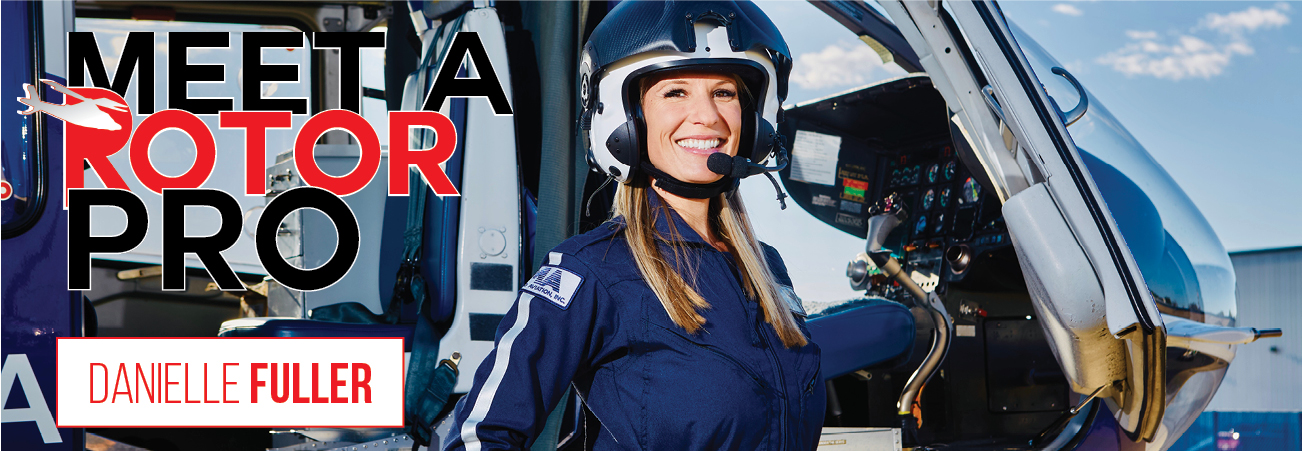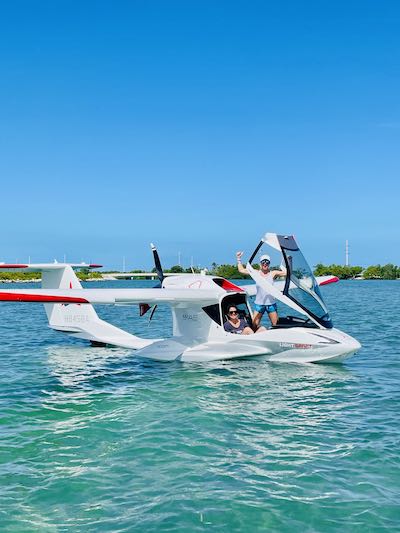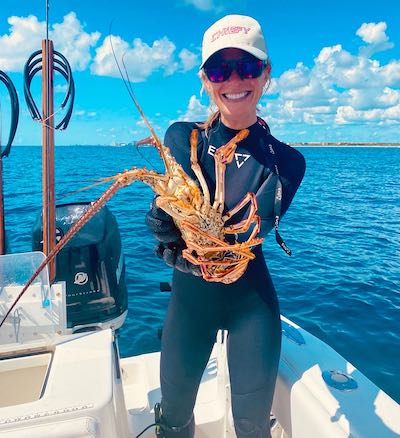|
Jul
15
2024
|
|
Posted 1 years 212 days ago ago by Admin
|
|

RPMN: What is your current position?
I’m a helicopter air ambulance (HAA) pilot for Metro Aviation, assigned to the Tampa General Hospital Program in Punta Gorda, Florida. Our base operates an EC135P2+ as our primary aircraft and a Bell407GX as our backup.
RPMN: Tell me about your first experience with helicopters.
I was around 15 years old, sitting in the backseat of my parent's car, which was at a standstill in a line of traffic, due to a major car accident. I vividly recall observing a helicopter landing on the highway to airlift a patient. As the helicopter ascended and departed the scene, I was struck by a profound sense of purpose, realizing at that exact moment that my future ambition was to become a medical helicopter pilot.
RPMN: How did you get your start in the helicopter industry?
During my second semester at junior college, the guidance counselors were not equipped with information about my aspirations to pursue an aviation career, particularly focusing on helicopters. Consequently, I took the initiative to visit O22, the local airport in Columbia, California, where Phi Air Medical operates a helicopter base. During this visit, I had the opportunity to connect with one of the pilots at the base who became my inaugural mentor. His guidance not only solidified my ambitions but also played a pivotal role in persuading my parents that my seemingly far-fetched career goal was achievable.

RPMN: When and how did you choose the helicopter industry? Or did it choose you?
I chose to pursue a career in the helicopter industry at 19. I discovered a reputable Part 141 helicopter flight school in Fresno, California, but my parents insisted I finish my associate's degree first. Since I couldn't get approved for a $56,000 student loan back in 2006, my grandmother agreed to match my savings. I worked as a licensed cosmetologist and saved every penny while living at home to finish junior college as quickly as possible. I even remember sneaking out of my college courses a few times to go to the airport, where my mentor offered to do ground school if he was on shift and not on a call. I was most definitely the one choosing the helicopter industry. As much as I wish it could have chosen me or fallen into my lap, overcoming the hurdles it took to begin civilian flight school gave me a strong sense of appreciation and dedication to every lesson.
RPMN: Where did you get your start flying or maintaining professionally?
After completing flight school and obtaining my CFI/CFII, I started working as an instructor to gain flight hours. My first significant opportunity in the industry came in 2009 when I joined Sundance Helicopters in Las Vegas, where I flew tours to the Grand Canyon in the AS350B2, my first turbine helicopter. I later became qualified in the EC130B4 and spent three years accumulating turbine flight hours.
RPMN: If you were not in the helicopter industry, where else would you see yourself?
I love spending time on the ocean almost as much as I enjoy being in the air. When COVID slowed down non-essential aviation activities, I obtained my USCG OUPV “six-pack” captain’s license and worked doing some offshore fishing charters. I would say that I could see myself working towards my Master Captain’s License to operate Super Yachts or flying seaplanes full time.
RPMN: What do you enjoy doing on your days off?
I thrive on the 7-days-on, 7-days-off schedule and live by the motto: “Work hard, play harder.” There’s very little that can’t be accomplished with an entire week off. I love traveling, boating, country concerts, spending the day at the beach, scuba diving, fishing, or relaxing at home with my boyfriend, his daughter, and our dog. Additionally, I've recently delved into recreational tailwheel airplane flying.

RPMN: What is your greatest career accomplishment to date?
I’d say remaining steadfast in maintaining integrity and prioritizing safety. Doing the right thing is not always easy, but essential. The challenge arises when realizing one stands alone in an environment where deviant behavior is normalized. Whether it involves refusing to fly an unairworthy aircraft or resigning due to safety concerns, I have always stood my ground. Reflecting on the past, I take pride in never compromising my standards for the sake of financial gain or mere flight hours.
RPMN: Have you ever had an “Oh, crap” moment in helicopters? Can you summarize what happened?
While flying a news helicopter in Los Angeles about 12 years ago, I experienced my first bird strike at night. At the time, I didn't immediately realize it was a bird strike because I didn’t see what happened; I only heard it. I was flying straight and level when there was a sudden loud BANG! It startled me, and I immediately checked my flight controls and instruments, wondering if we had been shot at. As a precaution, I made a landing at the Pasadena PD helipad where a couple of officers came out with flashlights to help look for anything unusual. We found a small area with feathers and blood on the nose of the Astar, but surprisingly, the impact didn't cause any damage other than the need for some decontamination cleanup. That initial "Oh, crap" moment, turned into an "Oh, hey" moment by getting the opportunity to meet a few of the pilots we often shared the airspace with in the LA basin. It was great to finally put a face to the voices we had been hearing on 123.02.
RPMN: If you could give only one piece of advice to new pilots, mechanics, or support personnel, what would it be?
It may sound cliché, but it was advice given to me when I was new to the industry, and I’ve always tried to live by it: “Enjoy the journey as much as the destination.” I started very ambitious with the end goal of becoming a helicopter air ambulance pilot, but always made sure to enjoy my different flying jobs, living locations, and friendships made along the way.
RPMN: In your view, what is the greatest challenge for the helicopter industry at this moment in time?
The airline industry's pilot shortage has led to the recruitment of highly skilled career helicopter pilots and an increase in attrition rates in the helicopter industry.
READ MORE ROTOR PRO: https://justhelicopters.com/Magazine
WATCH ROTOR PRO YOUTUBE CHANNEL: https://buff.ly/3Md0T3y
You can also find us on
Instagram - https://www.instagram.com/rotorpro1
Facebook - https://www.facebook.com/rotorpro1
Twitter - https://twitter.com/justhelicopters
LinkedIn - https://www.linkedin.com/company/rotorpro1